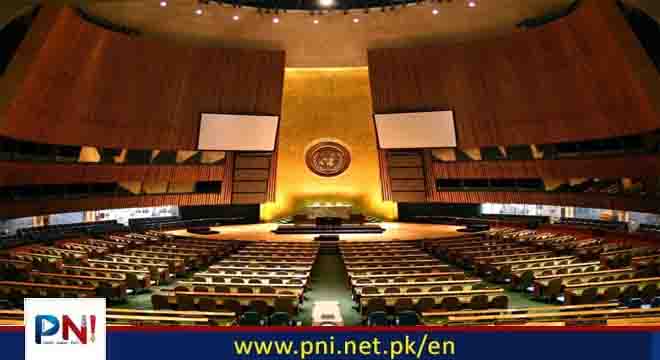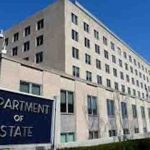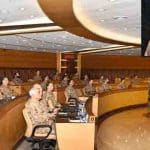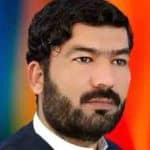UNITED NATIONS, Sep 15 : The UN General Assembly has adopted the work programme for its seventy-ninth session, deciding to include items on addressing the legacy of nuclear weapons and on lethal autonomous weapons systems in its agenda, while Russia and Ukraine voiced opposing views on the body’s consideration of an item relating to the war-hit eastern European country.
Acting on the recommendation of its steering committee, the 193-member Assembly decided that the general debate, which will be held from 24 to 30 September, will continue on Saturday, 28 September. [The general debate will not be held on Sunday, 29 September.]
More than 130 heads of state/government, including Pakistan’s Prime Minister Shehbaz Sharif, are expected to attend the high-level debate.
The Assembly President Philémon Yang of Cameroon, highlighted the Committee’s other recommendations on the organization of the session, concerning rationalization of work, closing date of the session, the general debate and the conduct of meetings.
The Assembly also took note of information on the ‘right of reply’ — particularly the organ’s practice that statements delivered in exercise of the right of reply to addresses made by Heads of State be in writing.
It decided to consider the draft agendas titled “Addressing the legacy of nuclear weapons: providing victim assistance and environmental remediation to Member States affected by the use or testing of nuclear weapons” and “Lethal autonomous weapons systems (LAWS)” under the “Disarmament” heading on its agenda. (LAWS are weapons that select and apply force to targets without human intervention).
Under the “Organizational, administrative and other matters” heading, it decided to consider the draft agendas titled “Eightieth anniversary of the end of the Second World War”, “Observer status for the Regional Anticorruption Initiative in the General Assembly” and “Observer status for the International Coffee Organization in the General Assembly”.
During the meeting, Russia disassociated itself from consensus on the decision to include the item titled “The situation in the temporarily occupied territories of Ukraine” in the Assembly’s agenda. Stating that this wording does not reflect reality and intentionally misleads the international community, the Russian representative stressed that it also denies the fundamental principle of self-determination.
“The bloody pro-Nazi coup in Kyiv in 2014 initiated by the West” caused the systematic persecution and physical elimination of ethnic Russian, Russian-speaking and Christian Orthodox residents in Ukraine, the Russian representative said. Meanwhile, she continued, this agenda item only serves to propagate the Kyiv regime’s unsubstantiated accusations and propaganda. Further, because the topic of Ukraine is also discussed in other forums, this agenda item is a clear example of duplication of efforts.
The representative of Ukraine, for her part, thanked the Assembly for the inclusion of this agenda item. “We deeply regret the disrespectful attitude displayed by the Russian delegation towards the General Assembly, the most-representative principal organ of this Organization,” she said. Against the backdrop of the Russian Federation’s full-scale invasion of Ukraine, retaining this item in the agenda is of paramount importance.
“We are convinced that the vigilant attention of the General Assembly as a primary deliberative policy-making and representative body is indispensable in addressing Russia’s heinous acts of terrorism,” she stressed, adding that Member States have shown substantial interest in this year’s debate on the item — which only underscores its significance.
Follow the PNI Facebook page for the latest news and updates.









